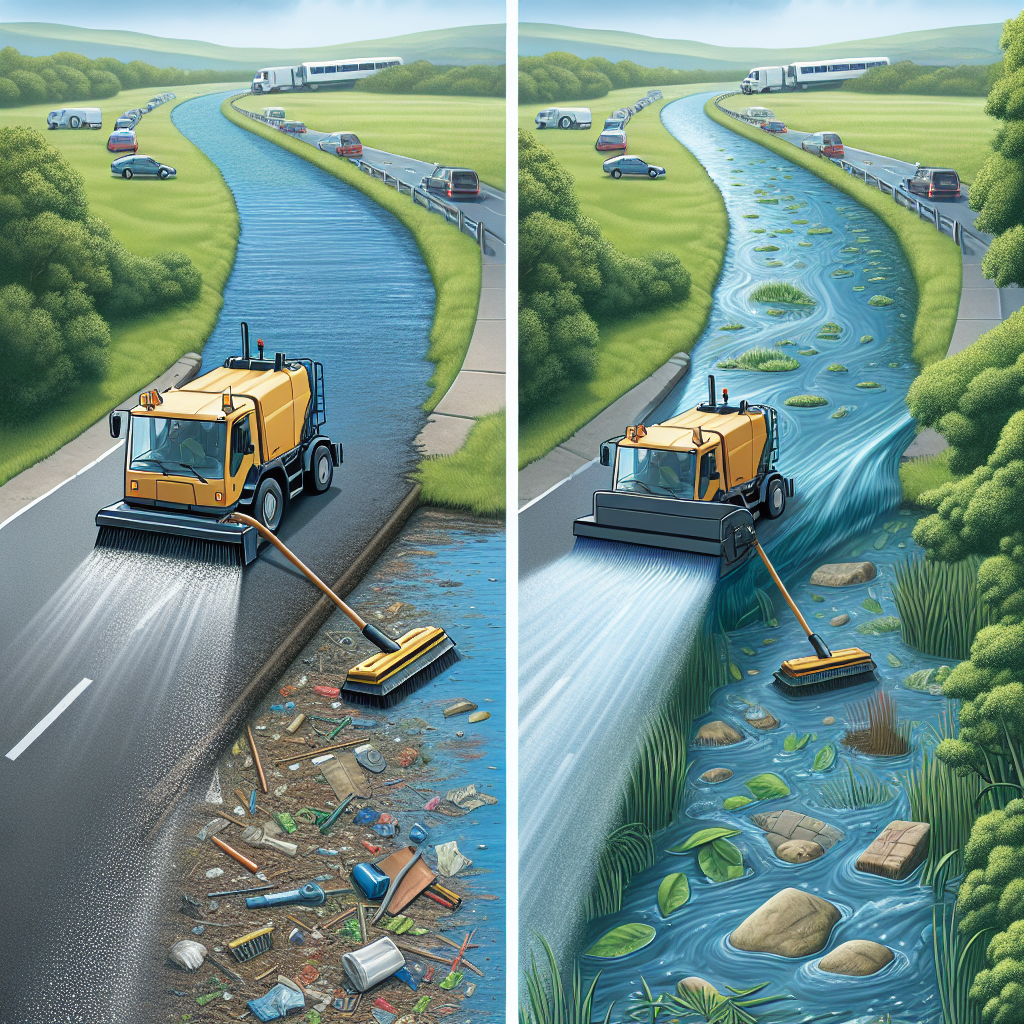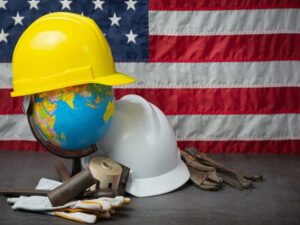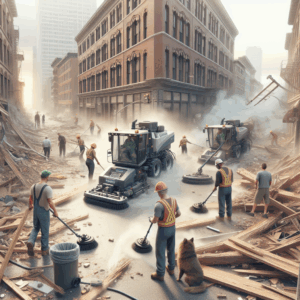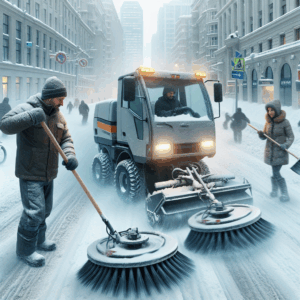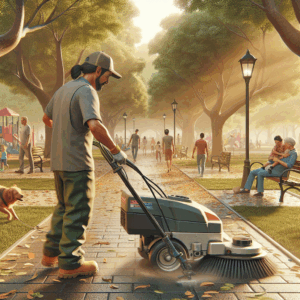Every time it rains, water flows over streets, sidewalks, and parking lots, picking up dirt, trash, and chemicals along the way. This is called runoff, and it can lead to water pollution in our local rivers, lakes, and oceans. One way to help prevent this pollution is through a process called power sweeping. But what is power sweeping, and how does it protect our waterways? Let’s dive in!
First, let’s understand runoff pollution a little better. Runoff happens when rainwater flows over surfaces that don’t absorb water, like pavement or concrete. This water collects pollutants such as oil from cars, trash, and even hazardous materials like pesticides. When this dirty water makes its way into storm drains, it often flows straight into nearby lakes and streams without any cleaning. This can harm fish, plants, and even the water we drink.
Enter power sweeping! Power sweeping involves using a machine, much like a street sweeper truck, to clean large areas such as roads, parking lots, and industrial sites. These machines are equipped with strong brushes and vacuums designed to pick up debris, dirt, and even fine particles that collect on these surfaces. This debris is then disposed of properly, preventing it from being washed into storm drains and waterways.
Power sweeping is especially important in urban areas where there are a lot of hard surfaces and less soil or vegetation to naturally filter pollutants. By removing these nasties before they wash away, power sweeping helps keep nearby water bodies cleaner and healthier.
Another great thing about power sweeping is that it helps improve air quality too! When dirt and pollution sit on the road, cars drive over them and kick up dust that can make the air dirty and unhealthy. By removing this debris, power sweeping helps keep the air we breathe cleaner.
In addition to protecting waterways and air quality, power sweeping also makes our communities look nicer. Nobody likes to see trash and grime piling up in their neighborhood. Clean streets and parking areas make places more inviting and pleasant for everyone.
You might be wondering how often power sweeping should be done. The frequency of sweeping depends on the area and its specific needs. Busy city streets and industrial areas might need more frequent cleaning compared to quieter neighborhoods or places with lots of trees and grass. However, regular sweeps, even just once a month, can make a big difference.
Local governments and businesses often hire power sweeping services to keep their areas clean. This is part of a bigger effort to manage stormwater and protect the environment. In some places, there are even rules that require sweeping to help meet clean water standards.
Besides hiring professional services, we can all do our part to protect waterways from runoff pollution. Simple actions like picking up litter, using less toxic products, and properly disposing of hazardous materials make a big impact. The goal is a cleaner, healthier environment for now and the future.
In conclusion, power sweeping is a powerful tool in the fight against runoff pollution. By keeping pollutants off streets and out of water systems, it helps protect local waterways and create healthier communities. Next time you see a street sweeper, remember the important role it's playing in keeping our water clean and our planet happy.

